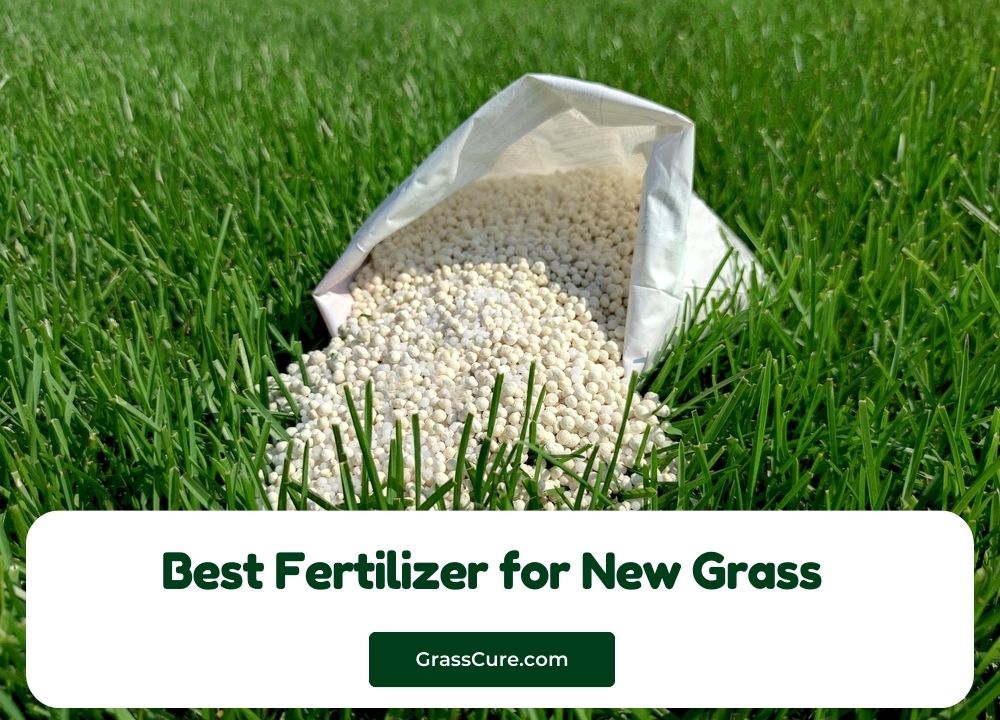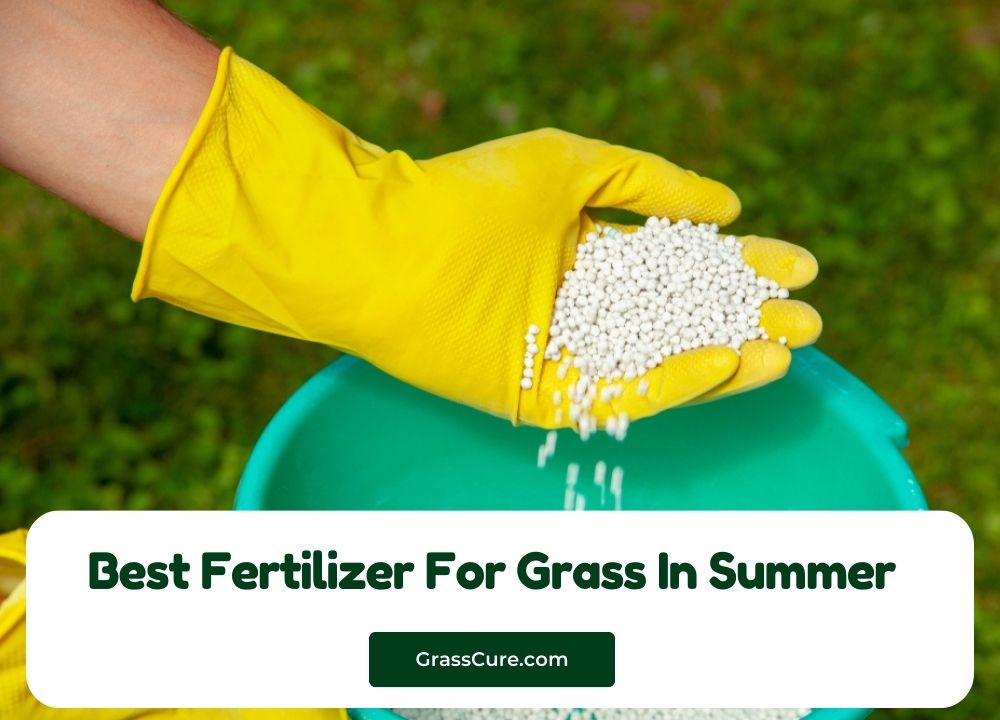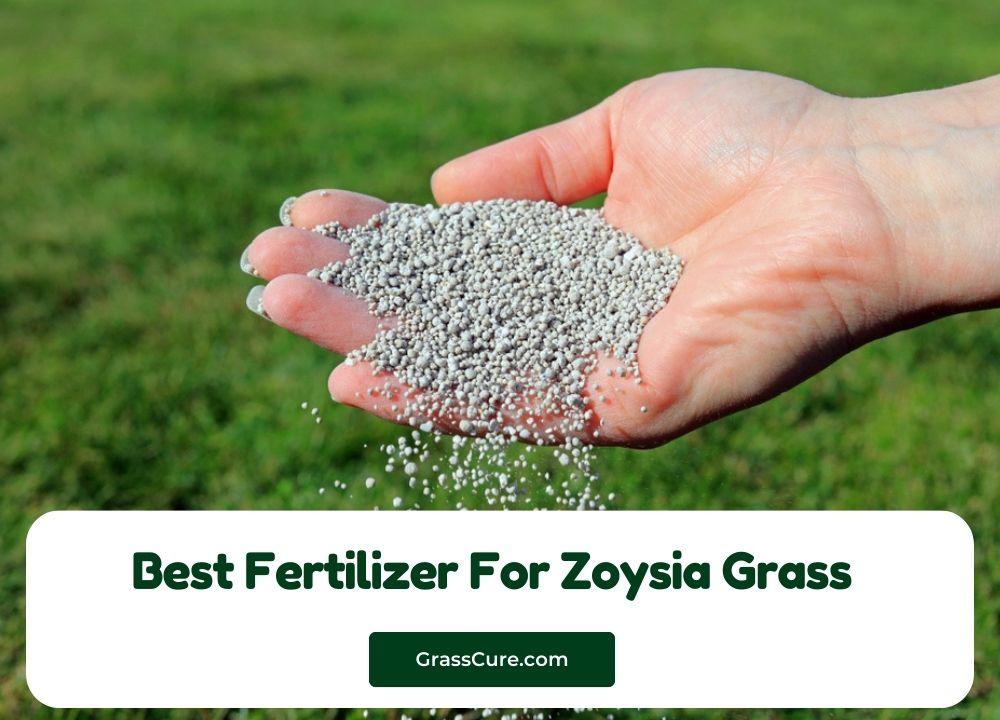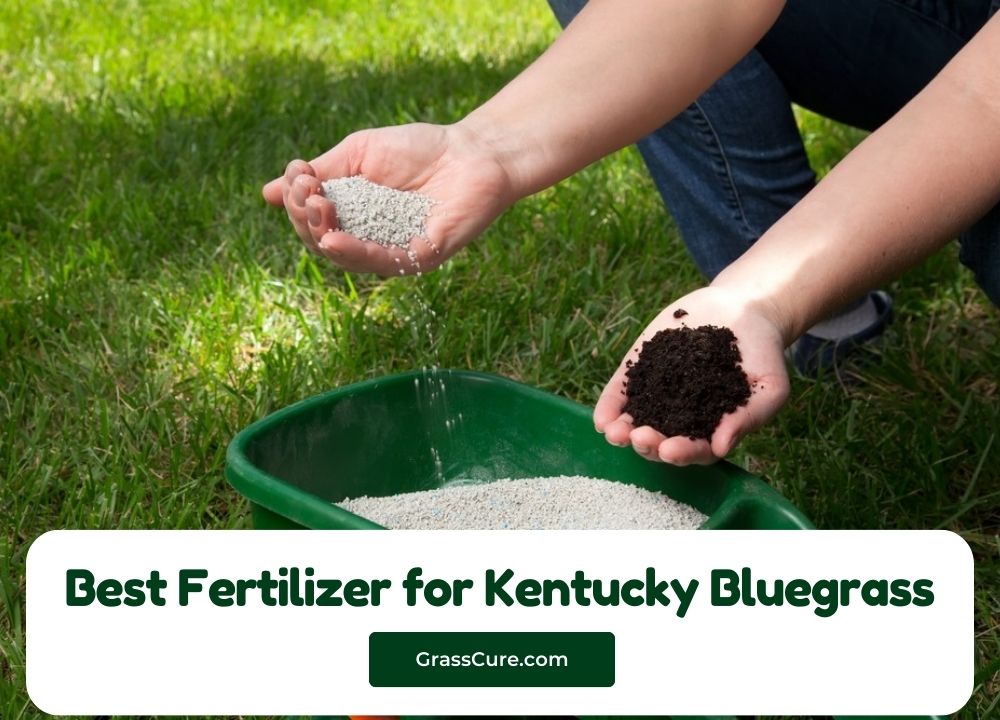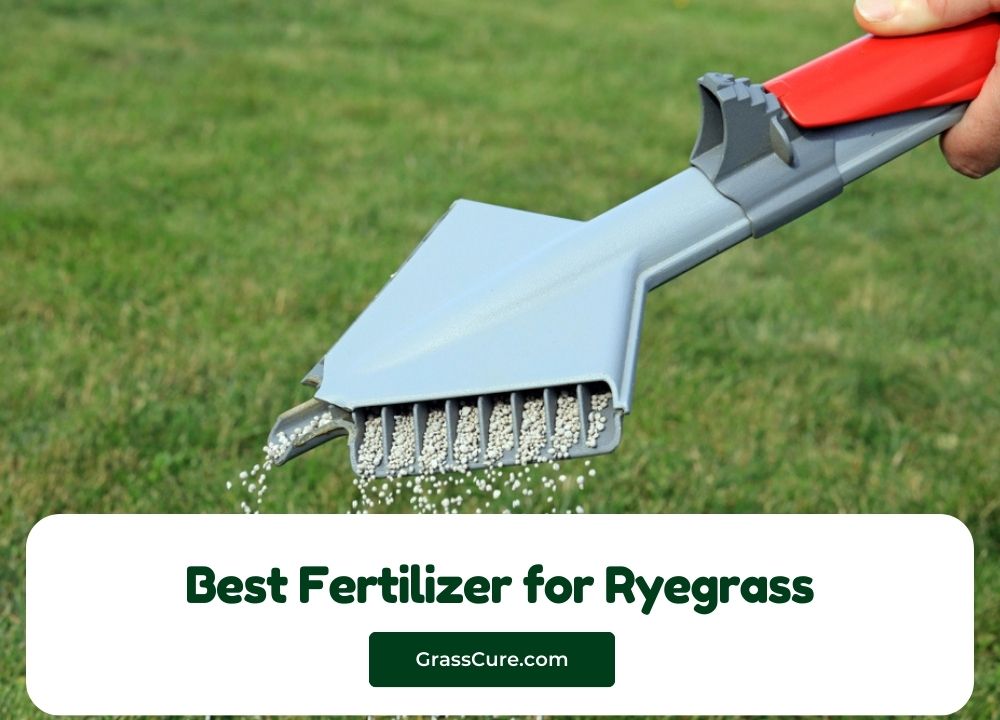Bermuda grass is a popular warm-season turfgrass known for its vibrant green color, durability, and ability to thrive in sunny environments. Often used in lawns, golf courses, and athletic fields, its robust growth makes it a favorite among homeowners and landscapers alike. However, to achieve a lush and healthy lawn, proper fertilization is essential. Fertilizers provide the necessary nutrients that Bermuda grass needs to flourish, especially during its peak growing seasons. This article aims to guide readers in selecting the best fertilizers for Bermuda grass, helping them maintain a vibrant lawn that stands up to the challenges of weather, foot traffic, and other stresses.
Contents
Understanding Bermuda Grass Nutritional Needs
To cultivate a thriving Bermuda grass lawn, it’s crucial to understand its nutritional requirements. Bermuda grass thrives on a balanced supply of essential nutrients that support its vigorous growth and resilience. Here are the key aspects of its nutritional needs:
Key Nutrients Required
- Nitrogen (N):
- Nitrogen is vital for promoting lush, green foliage. It plays a significant role in photosynthesis and is essential for the overall growth and health of Bermuda grass.
- Phosphorus (P):
- Phosphorus aids in root development and promotes strong grass establishment. It is crucial during the early growth stages and enhances the grass’s ability to absorb nutrients and water.
- Potassium (K):
- Potassium strengthens the grass’s overall health, improving its drought resistance and ability to withstand diseases. It plays a role in regulating water balance and enhancing the grass’s stress tolerance.
Seasonal Nutrient Requirements
- Spring and Summer Growth:
- Bermuda grass requires higher levels of nitrogen during the growing season (spring and summer) to support vigorous growth and lush color. Fertilizing with a nitrogen-rich product during this period can enhance growth and green-up.
- Fall and Winter Considerations:
- As temperatures drop, Bermuda grass slows its growth. A balanced fertilizer with lower nitrogen and higher potassium can help prepare the grass for dormancy and improve its resilience against winter stress.
Soil Testing
- Importance of Knowing Soil Nutrient Levels:
- Conducting a soil test is essential to determine the existing nutrient levels and pH of the soil. This information helps in selecting the right fertilizer and avoiding over-fertilization, which can lead to nutrient imbalances and environmental issues.
- How to Conduct a Soil Test:
- Homeowners can collect soil samples from different areas of their lawn and send them to a local extension service or a soil testing lab. The results will provide valuable insights into the soil’s nutrient content, helping to tailor fertilization practices for optimal grass health.
Types of Fertilizers for Bermuda Grass
Choosing the right type of fertilizer is crucial for promoting healthy growth in Bermuda grass. Fertilizers come in various forms, each with its own advantages and disadvantages. Here are the main types of fertilizers suitable for Bermuda grass:
Organic Fertilizers
- Benefits and Drawbacks:
- Benefits: Organic fertilizers are derived from natural sources, such as compost, manure, and bone meal. They improve soil structure, enhance microbial activity, and provide slow-release nutrients. They are also less likely to burn the grass if applied correctly.
- Drawbacks: They typically have lower nutrient concentrations compared to synthetic options, requiring larger quantities for effective fertilization. Nutrient release rates can also be slower, which may not meet the immediate needs of rapidly growing grass.
- Recommended Products:
- Examples include well-aged compost, fish emulsion, and organic granular fertilizers specifically formulated for lawns.
Synthetic Fertilizers
- Benefits and Drawbacks:
- Benefits: Synthetic fertilizers contain concentrated nutrients, allowing for precise control over nutrient application. They provide quick results and can be formulated for specific nutrient ratios to meet the grass’s needs.
- Drawbacks: Over-application can lead to nutrient runoff, environmental pollution, and grass burn if not applied correctly. They may also negatively affect soil health by reducing microbial activity over time.
- Recommended Products:
- Look for popular brands that offer nitrogen-rich formulations, such as 20-5-10 or 16-4-8, which are specifically designed for Bermuda grass.
Slow-Release vs. Quick-Release Fertilizers
- Definitions and Differences:
- Slow-Release Fertilizers: These fertilizers release nutrients gradually over an extended period, providing a steady supply of nutrients to the grass. They are beneficial for promoting sustained growth and minimizing nutrient leaching.
- Quick-Release Fertilizers: These products provide an immediate boost of nutrients, making them ideal for quick greening and addressing nutrient deficiencies. However, they require more frequent applications and can lead to rapid growth spurts.
- Best Uses for Each Type:
- Slow-Release: Ideal for regular feeding during the growing season, especially in late spring and summer, to support continuous growth.
- Quick-Release: Best used during the early spring to jump-start growth after dormancy or for quick fixes in areas showing nutrient deficiencies.
Fertilizer for Bermuda Grass
1. The Balanced Choice – Super Juice All-in-One Soluble Supplement Lawn Fertilizer
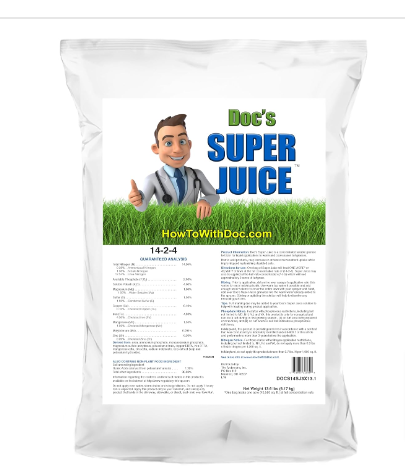
Super Juice is a popular all-in-one soluble supplement designed to provide essential nutrients for various types of lawns, including Bermuda grass. This fertilizer combines the benefits of both macro and micronutrients, promoting lush, green growth while enhancing the overall health of the lawn.
Key Features:
- Nutrient Composition:
- Super Juice typically contains a balanced ratio of nitrogen (N), phosphorus (P), and potassium (K), along with essential micronutrients such as iron, magnesium, and manganese. This comprehensive formulation supports healthy grass growth, root development, and disease resistance.
- Quick-Release Formula:
- As a soluble fertilizer, Super Juice is designed to dissolve easily in water, allowing for rapid nutrient absorption by the grass. This makes it an excellent choice for quick greening and addressing any nutrient deficiencies in the lawn.
- Versatile Application:
- Super Juice can be applied through various methods, including broadcasting, liquid spraying, or using a fertilizer injector. This flexibility allows homeowners to choose the best application method for their specific lawn care routine.
- Easy to Use:
- The concentrated powder format simplifies the application process. Homeowners can mix the required amount with water and apply it using a hose-end sprayer or a backpack sprayer, making it convenient for regular lawn maintenance.
- Eco-Friendly:
- Many formulations of Super Juice are designed to be environmentally friendly, minimizing the risk of nutrient runoff and reducing the impact on local ecosystems. Always check for specific certifications or claims regarding sustainability.
Pros and Cons:
Pros:
- Comprehensive nutrient profile that supports overall lawn health.
- Quick-acting formula that provides immediate results.
- Flexible application methods for convenience.
- Eco-friendly options available.
Cons:
- Requires regular applications, especially during peak growing seasons.
- May need to be used in conjunction with a soil test to determine specific lawn needs.
- Over-application can lead to nutrient burn if not used according to instructions.
Application Tips:
- Timing: Apply Super Juice in early spring to jump-start growth and during the growing season as needed to maintain a healthy lawn.
- Dilution: Follow the manufacturer’s instructions for the correct mixing ratio to ensure optimal results and prevent burning the grass.
- Frequency: For best results, consider applying every 4-6 weeks during the active growing season, adjusting based on the specific needs of your lawn.
Super Juice All-in-One Soluble Supplement Lawn Fertilizer is an effective choice for homeowners looking to nourish their Bermuda grass and achieve a lush, green lawn. Its balanced nutrient composition and ease of use make it a standout option for those seeking both immediate and long-term lawn health.
2. Scotts Turf Builder Lawn Food – Weed and Feed (Lawn Fertilizer plus Dandelion and Weed Killer)
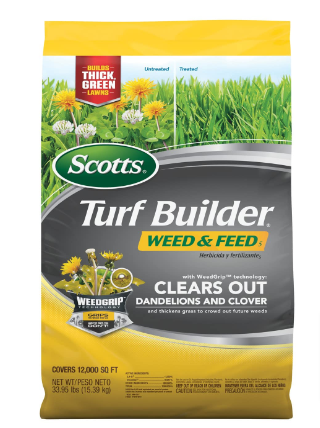
Scotts Turf Builder Weed & Feed 3 is a dual-action product designed to fertilize lawns while simultaneously controlling common weeds, such as dandelions and clover. This formulation is ideal for homeowners seeking to maintain a healthy, lush lawn while minimizing the presence of unwanted weeds.
Key Features:
- Nutrient Composition:
- The fertilizer typically contains a balanced ratio of nitrogen, phosphorus, and potassium (N-P-K) to promote strong grass growth and enhance overall lawn health. The exact nutrient breakdown may vary, but it is formulated to support vigorous growth and deep greening.
- Weed Control:
- Scotts Turf Builder Weed & Feed 3 is designed to effectively target and control a variety of common broadleaf weeds, including dandelions and clover. It uses selective herbicides that kill weeds without harming the grass.
- Coverage Area:
- One 14.29-pound bag covers up to 5,000 square feet of lawn, making it suitable for medium-sized residential lawns. The product is designed for easy application, providing adequate coverage to maximize effectiveness.
- Application Timing:
- Ideal for use in early spring or fall when weeds are actively growing. This timing ensures the product can effectively penetrate the weeds while promoting healthy grass growth.
- Granular Format:
- The granular form allows for easy application using a spreader. This ensures an even distribution of both fertilizer and herbicide across the lawn for optimal results.
Pros and Cons:
Pros:
- Dual-action product that fertilizes while controlling weeds.
- Selective herbicides target broadleaf weeds without harming grass.
- Easy to apply with a spreader for uniform coverage.
- Suitable for a wide range of lawn types, including Bermuda grass.
Cons:
- May require multiple applications to achieve desired weed control, especially for stubborn weeds.
- Not effective on all weed types; homeowners may need additional products for comprehensive weed management.
- Can only be applied during specific growth periods; avoid application during extreme heat or drought conditions.
Application Tips:
- Timing: Apply in early spring or fall when temperatures are moderate (60°F – 85°F) for best results.
- Moisture: Water the lawn lightly before application to help the granules adhere to the weeds, but avoid heavy rainfall immediately afterward to ensure effectiveness.
- Frequency: For optimal results, follow the recommended application schedule, typically every 6-8 weeks, based on lawn conditions and weed pressure.
Scotts Turf Builder Weed & Feed 3 is an effective solution for homeowners looking to nourish their Bermuda grass while simultaneously combating common weeds. Its dual-action formula, ease of use, and broad coverage make it a reliable choice for maintaining a healthy, vibrant lawn. With proper application and timing, it can help achieve the desired lawn aesthetic while minimizing weed issues.
3. The Andersons 7-1-2 Innova Organic Fertilizer
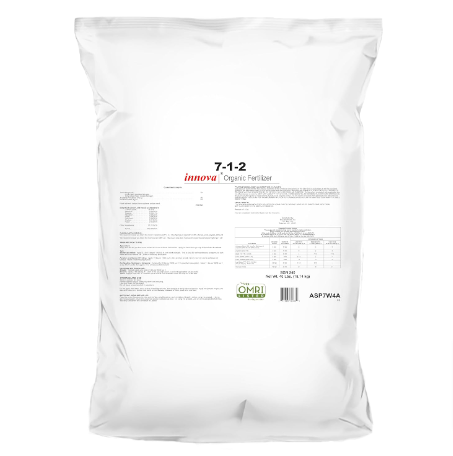
The Andersons 7-1-2 Innova Premium Organic Fertilizer is a high-quality organic option designed to promote healthy growth in lawns and gardens. With a focus on safe, natural ingredients, this fertilizer is ideal for families with children and pets, ensuring that your lawn remains vibrant and eco-friendly.
Key Features:
- Nutrient Composition:
- This fertilizer has an N-P-K ratio of 7-1-2, providing a balanced supply of nitrogen (N) for vigorous growth, phosphorus (P) for root development, and potassium (K) for overall plant health. The formulation is designed to support lush green lawns while enhancing soil fertility.
- Organic Ingredients:
- The Andersons Innova fertilizer is made from premium organic materials, making it safe for use around children and pets. Its natural composition not only nourishes the grass but also improves soil health and promotes beneficial microbial activity.
- Coverage Area:
- A 40-pound bag covers up to 5,600 square feet, making it a suitable choice for larger residential lawns. This generous coverage ensures that homeowners can effectively fertilize their entire lawn with one bag.
- Slow-Release Formula:
- The slow-release formulation ensures that nutrients are gradually released into the soil over time, providing a steady supply of nourishment to the grass. This helps to reduce the risk of nutrient burn and promotes consistent growth throughout the season.
- Environmentally Friendly:
- As an organic fertilizer, it aligns with eco-conscious gardening practices. It minimizes the risk of chemical runoff, making it a responsible choice for environmentally aware homeowners.
Pros and Cons:
Pros:
- Safe for children and pets, making it suitable for family-friendly yards.
- Organic formulation improves soil health and encourages beneficial microbial activity.
- Slow-release nutrients provide consistent feeding over time, reducing the need for frequent applications.
- Covers a large area, offering good value for larger lawns.
Cons:
- May take longer to see results compared to synthetic fertilizers, especially if immediate greening is desired.
- Some homeowners may find organic fertilizers less convenient due to the need for more frequent applications in some cases.
- Slightly higher cost compared to conventional fertilizers, but the benefits of organic growth often outweigh the price.
Application Tips:
- Timing: Apply in early spring or early fall for optimal growth and health of Bermuda grass. Avoid application during extreme temperatures or drought conditions.
- Method: Use a broadcast spreader for even distribution, ensuring the fertilizer is spread uniformly across the lawn for best results.
- Watering: Water the lawn lightly after application to help the fertilizer penetrate the soil and activate its nutrients. Avoid heavy watering immediately after to prevent runoff.
The Andersons 7-1-2 Innova Premium Organic Fertilizer is an excellent choice for homeowners looking to maintain a healthy, vibrant lawn while prioritizing safety and environmental sustainability. Its organic ingredients, balanced nutrient composition, and slow-release formula make it a standout option for those who want to nourish their Bermuda grass naturally. By following proper application practices, homeowners can enjoy a lush, green lawn that is safe for their families and pets.
4. Scotts Turf Builder Lawn Food – Summerguard with Insect Control
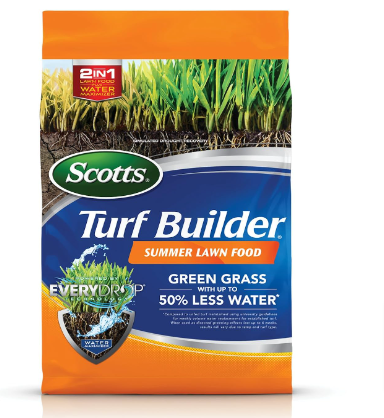
Scotts Turf Builder Summer Lawn Fertilizer Plus Water Maximizer is specially formulated to help maintain a healthy, green lawn during the hot summer months. This fertilizer not only nourishes the grass but also includes a unique water-maximizing technology, making it ideal for homeowners looking to conserve water while promoting robust growth in all grass types, including Bermuda grass.
Key Features:
- Nutrient Composition:
- The fertilizer typically contains a balanced N-P-K ratio specifically designed for summer application. It provides essential nutrients that support healthy grass growth, deep greening, and resilience against heat stress.
- Water Maximizer Technology:
- This innovative technology helps the grass retain moisture more effectively, reducing the need for frequent watering. This feature is particularly beneficial during hot and dry conditions, as it encourages deeper root growth and improves drought resistance.
- Coverage Area:
- A 9.42-pound bag covers up to 4,000 square feet, making it suitable for small to medium-sized lawns. The product is designed for easy application, ensuring that homeowners can effectively fertilize their lawns with minimal effort.
- Safe for All Grass Types:
- This fertilizer is safe for use on all types of grass, making it a versatile choice for mixed lawns. Homeowners with diverse grass species can confidently use this product without worrying about potential damage.
- Granular Format:
- The granular formulation allows for straightforward application using a spreader, ensuring even distribution across the lawn for optimal results.
Pros and Cons:
Pros:
- Formulated to support grass health during hot summer months, enhancing drought resistance.
- Water Maximizer technology helps retain moisture and reduces irrigation needs.
- Safe for all grass types, making it versatile for various lawn compositions.
- Easy to apply with a spreader for uniform coverage.
Cons:
- May require multiple applications during the summer season for optimal results, especially in extremely hot conditions.
- Not suitable for use during periods of heavy rain, as it may lead to nutrient runoff.
- Can lead to excessive growth if over-applied, requiring more frequent mowing.
Application Tips:
- Timing: Apply in late spring to early summer when temperatures begin to rise and grass is actively growing. Avoid applying during extreme heat or drought conditions.
- Moisture: Ensure the lawn is adequately watered before application to maximize nutrient absorption. Water lightly after application to help the granules activate without washing away.
- Frequency: For best results, follow up with a second application 6-8 weeks after the initial application, especially in areas with high heat and foot traffic.
Scotts Turf Builder Summer Lawn Fertilizer Plus Water Maximizer is an excellent option for homeowners looking to maintain a lush, green lawn during the challenging summer months. Its balanced nutrient composition, innovative water retention technology, and compatibility with all grass types make it a reliable choice for nurturing Bermuda grass and other lawn varieties. With proper application and care, this fertilizer can help homeowners achieve a vibrant, healthy lawn that withstands summer stressors.
5. The Natural Choice – Safer Brand Ringer Lawn Restore, Lawn Fertilizer
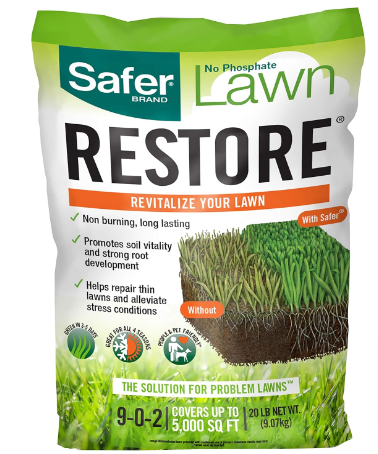
Safer Brand 9335SR Lawn Restore Natural Lawn Fertilizer is a natural, non-burning fertilizer designed to promote healthy lawn growth without the risk of damaging your grass. With its unique N-P-K ratio of 9-0-2, this fertilizer is specifically formulated to enhance grass health and improve soil quality, making it an excellent choice for homeowners looking for an eco-friendly option.
Key Features:
- Nutrient Composition:
- The fertilizer has an N-P-K ratio of 9-0-2, providing a substantial amount of nitrogen for lush, green growth, while the absence of phosphorus makes it suitable for established lawns, particularly in areas where soil phosphorus levels are already adequate. The potassium helps strengthen the grass, enhancing its drought resistance and overall health.
- Non-Burning Formula:
- Safer Brand’s formulation is designed to be non-burning, which means it can be safely applied without the risk of harming the grass, even in warmer temperatures. This feature is particularly beneficial for homeowners who may be concerned about fertilizer burn from traditional fertilizers.
- Coverage Area:
- One bag covers up to 5,000 square feet, making it a practical choice for medium-sized lawns. This extensive coverage ensures that homeowners can efficiently fertilize their entire lawn without needing multiple bags.
- Natural Ingredients:
- The fertilizer is made from natural ingredients, making it a safe choice for use around children and pets. Its organic composition aligns with environmentally friendly gardening practices, minimizing the risk of chemical runoff.
- Improves Soil Quality:
- In addition to feeding the grass, this fertilizer helps improve soil structure and fertility over time, promoting beneficial microbial activity that enhances overall soil health.
Pros and Cons:
Pros:
- Non-burning formula allows for safe application at any time of year.
- Natural ingredients are safe for children and pets, making it suitable for family-friendly yards.
- High nitrogen content promotes lush green growth.
- Covers a large area, providing good value for medium-sized lawns.
Cons:
- Lower potassium content compared to some synthetic fertilizers, which may require additional potassium supplementation in certain cases.
- May take longer to see results compared to quick-release synthetic fertilizers, particularly for immediate greening.
- Some users may need to apply it more frequently to maintain desired results during peak growing seasons.
Application Tips:
- Timing: Apply in early spring or early fall when grass is actively growing. Avoid applying during extreme heat or drought conditions for best results.
- Method: Use a broadcast spreader for even distribution across the lawn, ensuring uniform coverage.
- Watering: Water the lawn lightly after application to help the fertilizer penetrate the soil and activate its nutrients, but avoid heavy watering immediately afterward to prevent runoff.
Safer Brand 9335SR Lawn Restore Natural Lawn Fertilizer is an excellent choice for homeowners seeking a safe, effective, and environmentally friendly solution for nurturing their Bermuda grass and other lawn types. Its non-burning formula, balanced nutrient composition, and focus on soil health make it a standout option for maintaining a vibrant, healthy lawn. By following proper application practices, homeowners can achieve lush green growth while promoting sustainable lawn care.
Application Tips for Fertilizing Bermuda Grass
Proper fertilization is key to maintaining a healthy and vibrant Bermuda grass lawn. Here are some essential application tips to ensure optimal results when fertilizing Bermuda grass:
Soil Testing
- Conduct a soil test to determine existing nutrient levels and pH. This information will guide you in selecting the right fertilizer and application rates, helping to avoid over-fertilization and nutrient imbalances.
Timing
- Spring Application: Fertilize in early spring (March to April) as Bermuda grass begins to green up and actively grow. This is the most critical time to promote robust growth after dormancy.
- Summer Feeding: A second application can be made in late spring to early summer (May to June) to support vigorous growth during peak growing seasons.
- Fall Application: If desired, a light application in early fall (September) can help prepare the grass for dormancy and improve resilience against winter stress.
Choose the Right Fertilizer
- Select a fertilizer specifically formulated for Bermuda grass, ideally with a balanced N-P-K ratio. Look for slow-release fertilizers for sustained feeding and to reduce the risk of nutrient burn.
Application Method
- Granular Fertilizers: Use a broadcast or drop spreader for even distribution. Ensure the spreader is calibrated correctly to apply the recommended rate.
- Liquid Fertilizers: If using liquid fertilizers, apply with a sprayer, ensuring an even coat over the grass. Always follow the manufacturer’s instructions for dilution and application rates.
Watering
- Water the lawn lightly before applying fertilizer to help the granules adhere to the grass blades. After application, water thoroughly to help dissolve the fertilizer and ensure nutrients penetrate the soil.
- Avoid heavy watering immediately after application, as it may lead to nutrient runoff.
Frequency
- Follow the recommended application frequency based on the fertilizer type. For slow-release fertilizers, applications every 6-8 weeks during the growing season are common. Quick-release fertilizers may require more frequent applications.
Adjust for Weather Conditions
- Avoid fertilizing during extreme heat or drought conditions, as this can stress the grass and lead to burning. Aim for moderate weather conditions (60°F – 85°F) for optimal results.
Mowing
- Mow the lawn a day or two before applying fertilizer to help the grass absorb nutrients more effectively. Keep the mower blades sharp for a clean cut, promoting healthy grass growth.
Observe Lawn Response
- Monitor the lawn’s response to fertilization. If you notice excessive growth, yellowing, or other signs of stress, adjust your fertilization schedule or consider reevaluating your nutrient plan.
Buying Guide for Fertilizers for Bermuda Grass
When selecting the best fertilizer for your Bermuda grass, consider the following factors to ensure optimal growth and health for your lawn:
Understand Your Lawn’s Needs
- Soil Testing: Start with a soil test to determine nutrient levels and pH. This will help you identify any deficiencies or excesses in your soil, guiding you toward the right fertilizer type and formulation.
- Growth Stage: Consider the current growth stage of your Bermuda grass. Early spring is critical for rejuvenating grass after dormancy, while summer may require different nutrient needs.
N-P-K Ratio
- Look for fertilizers with an appropriate nitrogen (N), phosphorus (P), and potassium (K) ratio. Bermuda grass generally benefits from higher nitrogen levels for growth and greening. Common ratios include:
- High Nitrogen: 20-5-10 or 16-4-8 for robust growth.
- Balanced: 10-10-10 for general feeding.
Type of Fertilizer
- Granular Fertilizers: These are easy to apply and provide slow-release nutrients over time. They are ideal for homeowners who prefer less frequent applications.
- Liquid Fertilizers: These provide quick results and are suitable for targeted feeding or quick fixes for nutrient deficiencies. However, they may require more frequent applications.
- Organic vs. Synthetic: Decide between organic fertilizers, which improve soil health and are safe for pets and children, and synthetic fertilizers, which provide immediate nutrient boosts but may require caution in application.
Water Retention and Drought Resistance
- Look for fertilizers with water-retention technology or those designed to enhance drought resistance, especially if you live in a hot, dry climate.
Coverage Area
- Check the coverage area of the fertilizer to ensure it meets your lawn size. Products that cover larger areas can offer better value for money.
Application Method
- Consider how easy the fertilizer is to apply. Granular fertilizers should be easy to spread with a broadcast or drop spreader, while liquid fertilizers may require sprayers. Choose a product that fits your preferred application method.
Safety and Environmental Impact
- If you have children or pets, look for fertilizers labeled as safe for use around them. Organic options are generally a safer choice.
- Consider the environmental impact of the fertilizer, especially regarding runoff and soil health. Products that improve microbial activity and soil structure can contribute to long-term lawn health.
Brand Reputation and Reviews
- Research brands and read customer reviews to gauge the effectiveness of the fertilizer. Established brands with positive reviews are often more reliable.
Cost
- Compare prices per square foot of coverage among different products to determine which offers the best value. While organic fertilizers may have a higher upfront cost, they can provide long-term benefits for soil health.
FAQ: Fertilizing Bermuda Grass
1. When is the best time to fertilize Bermuda grass?
- The best time to fertilize Bermuda grass is in early spring (March to April) when the grass begins to green up and actively grow. A second application can be made in late spring to early summer (May to June) for continued growth. A light application in early fall (September) can also be beneficial before dormancy.
2. What type of fertilizer should I use for Bermuda grass?
- Look for fertilizers specifically formulated for Bermuda grass, ideally with a high nitrogen content and a balanced N-P-K ratio. Common options include granular slow-release fertilizers and liquid quick-release fertilizers, depending on your preference for application.
3. How often should I fertilize Bermuda grass?
- Fertilization frequency depends on the type of fertilizer used. Slow-release fertilizers may be applied every 6-8 weeks during the growing season, while quick-release fertilizers may require more frequent applications (every 4-6 weeks) for optimal results.
4. Can I use synthetic fertilizers on my Bermuda grass?
- Yes, synthetic fertilizers can be used on Bermuda grass, and they often provide immediate nutrient boosts. However, they may carry a higher risk of burning the grass if applied incorrectly. Always follow the manufacturer’s instructions for application rates.
5. How do I prevent fertilizer burn on Bermuda grass?
- To prevent fertilizer burn, apply fertilizers at the recommended rates and timings. Water the lawn lightly before and after application to help the fertilizer absorb into the soil. Avoid applying fertilizer during extreme heat or drought conditions.
6. Is it safe to fertilize Bermuda grass around pets and children?
- Some fertilizers are safe for use around pets and children, especially organic options. Always check the label for safety information. If using synthetic fertilizers, keep pets and children off the lawn until the product has been watered in and dried.
7. What if I missed the spring fertilization? Can I still fertilize?
- Yes, you can still fertilize Bermuda grass if you missed the spring application. Fertilizing in late spring or early summer will still promote growth and recovery. Just adjust your fertilization schedule accordingly for the rest of the season.
8. What should I do if my Bermuda grass is yellowing?
- Yellowing can indicate nutrient deficiencies, typically nitrogen. Apply a high-nitrogen fertilizer to address this issue. Conduct a soil test if yellowing persists to determine if other factors (like pH imbalance or pest issues) are contributing to the problem.
9. How can I improve soil health while fertilizing?
- Use organic fertilizers or fertilizers that promote microbial activity to enhance soil health. Additionally, incorporating compost or organic matter into your lawn care routine can improve soil structure, water retention, and nutrient availability.
10. Can I use lawn clippings as fertilizer for Bermuda grass?
- Yes, grass clippings can be used as a natural fertilizer. They return nutrients to the soil as they decompose, promoting healthy growth. Make sure to mulch clippings finely to allow them to break down effectively and avoid smothering the grass.
References for Fertilizing Bermuda Grass
Here are some reliable references that provide valuable information about fertilizing Bermuda grass and lawn care practices:
- University of Georgia Cooperative Extension
- “Bermudagrass Management”
This guide covers the basics of Bermuda grass management, including fertilization recommendations, best practices, and maintenance tips.
[University of Georgia](https://extension.uga.edu/publications/detail.html?number=C 1091)
- “Bermudagrass Management”
- Texas A&M AgriLife Extension
- “Managing Bermudagrass Lawns”
This resource provides comprehensive guidelines on the proper fertilization, mowing, watering, and pest control for Bermuda grass lawns.
Texas A&M
- “Managing Bermudagrass Lawns”
- Florida Cooperative Extension Service
- “Fertilizing Lawns”
This publication offers insights into lawn fertilization, including the types of fertilizers suitable for various grass types, including Bermuda grass.
University of Florida
- “Fertilizing Lawns”
- Purdue University Extension
- “Fertilizing Home Lawns”
This document discusses the importance of soil testing, nutrient needs, and appropriate fertilizer application rates for home lawns, including Bermuda grass.
Purdue University
- “Fertilizing Home Lawns”
- USDA National Resources Conservation Service
- “Understanding Soil Health”
This resource explains the significance of soil health and how proper fertilization contributes to the overall vitality of lawns.
USDA NRCS
- “Understanding Soil Health”
- Scott’s Lawn Care
- “Lawn Care & Fertilization Tips”
Scott’s provides practical tips and product recommendations for lawn care, including specific guidance for fertilizing Bermuda grass.
Scott’s Lawn Care
- “Lawn Care & Fertilization Tips”
- Safer Brand
- “The Benefits of Organic Lawn Fertilizers”
This article discusses the advantages of using organic fertilizers, particularly for Bermuda grass and other lawn types.
Safer Brand
- “The Benefits of Organic Lawn Fertilizers”

